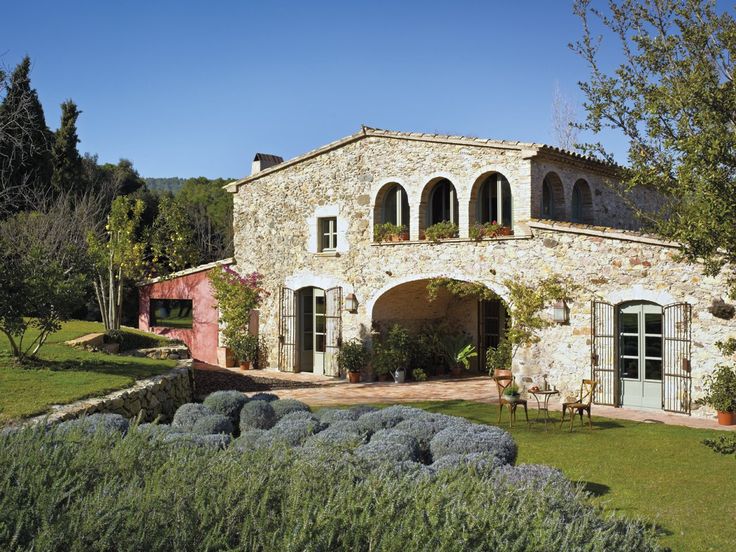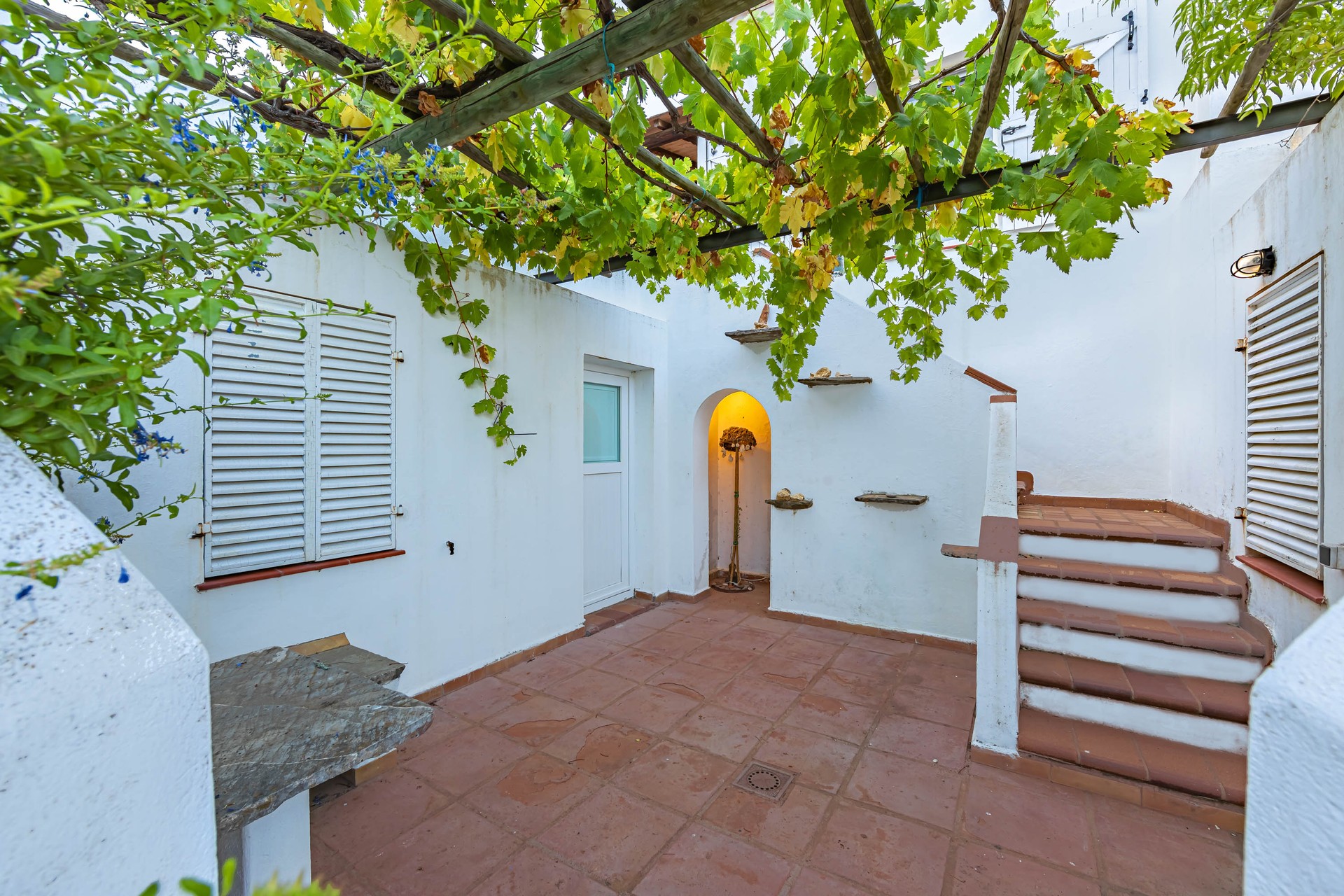
As a general rule, it is not permitted to build a house on rural or undeveloped land. However, the Ley de Suelo y Rehabilitación Urbana, which establishes a series of rules that control buildability, allows the autonomous communities to establish their own urban planning regulations. The autonomous regions, for their part, tend to have a series of basic rules that coincide. These include the obligation that any type of construction must be in harmony with the rural environment, and the prohibition of real estate development in rural areas, in order to prevent the formation of urban nuclei.
In recent years, buying undeveloped rural land has become one of the safest options, as, since the real estate crisis, it has seen a smaller drop in value than urban plots.
In order to know what can be built, it is necessary to know that this type of land has a special character, due to its exclusive value. For this reason, it has the status of protected and reserved, above all, for agricultural, livestock, forestry or social use. Within this classification, the following subcategories can be found:
Protected undeveloped land
- They have the status of maritime and hydraulic public domain assets.
- Their purpose is to conserve nature, flora, fauna or territory, which are protected by a specific regime.
- They have conservation or regeneration measures, as they are located in forestry, landscape or ecological areas.
- It is governed by protection measures incompatible with its transformation.
- Its environment includes a series of natural risks, which do not allow its transformation, such as the possibility of erosion, landslides, floods, etc.
- It represents natural, landscape or cultural values, and its restoration is of local interest.
Common undeveloped land
Normally, regional and municipal legislation establishes that buildings must conserve the rural environment and its natural surroundings. In addition, there must be a great distance between buildings, so that urban nuclei are not generated. Any new construction must have its own sewage treatment system. Finally, urban planning regulations do not allow building near roads, livestock trails or areas of public domain.

Constructions on rural land must fully comply with the laws of each municipality or autonomous region.
On rural properties, construction work can only be carried out if it is provided for in the planning and approved by the relevant urban development ordinance. For this reason, whenever you intend to buy land that cannot be developed, it is essential to consult the regional and municipal regulations, as well as the state regulations, to find out and study the possibilities and conditions for building. Normally, the constructions that are carried out are intended for the use, conservation, care or restoration of natural resources. One of the most common exceptions found in all the autonomous communities is that it is possible to build as long as the plot is far from the owner's place of residence. In this case, a house can be built, as long as it is essential for its maintenance and exploitation.
Urban plans establish the limitations, characteristics and conditions for construction on rural land. However, as mentioned above, it is permitted to build on rural land, as long as it complies with the relevant laws and regulations. In this way, different types of construction can be carried out:
Housing
There are several exceptions when it comes to building a house on rural land, in which many autonomous communities agree, which allow a house to be built. On the one hand, single-family detached houses can be built, as long as the land is developable and the regulations of the area do not prohibit it. On the other hand, in the case of land used for agriculture, livestock, forestry, etc., and which is far from the owner's place of residence, the autonomous legislations grant the possibility of building a house, as long as it is essential to maintain the main activity being carried out.
Rehabilitate
Many rural properties have an old building, which appears in the corresponding Land Registry. In this case, the law allows it to be rehabilitated, either for residential use or to be used for any type of rural activity. However, it is not allowed to extend its surface, neither in extension nor in height. That is to say, the reforms will consist of improvement and maintenance, but without modifying the structure.
Agricultural activities
Along with livestock farming, this is the most traditionally developed activity in Spain. In these cases, the law allows the necessary works to be carried out to develop the main activity of the property. It also offers the possibility of including the house of the main people in charge of carrying out the exploitation and who, consequently, will live on the plot.
Other types of buildings
Each autonomous community has different town planning regulations. Therefore, depending on where the plot is located, it is possible to build sports, cultural, educational, etc. facilities. Some regions also allow the land to be used for the installation of telecommunications, renewable energy sources or even petrol stations.
One of the most interesting aspects of building a house on rustic land that seduces owners is the economic advantage. For example, the IBI to be paid is lower than in urban areas. Another monetary advantage is the sale price of the house built, which will be lower than that of a house built on urban land. Finally, another aspect related to the economy of a house on rural land is the water supply. The possibility of having a well is much more cost-effective than running water. On the other hand, more obvious factors are interesting, such as the tranquillity of living in a rural environment, closer to nature.
One of the big drawbacks to building on these properties is financing. Banks usually have a policy of not financing the purchase or construction of houses on rural plots of land. Therefore, they only grant a percentage of the amount requested or needed to build.

Building from scratch has many advantages
Buying a plot of land with the intention of building on it appeals to many people, especially if it is for a home. However, this can only be done in very specific situations. Therefore, before building, it is essential to be clear about a series of steps to follow:
Consult local, regional and national regulations.
The first step to take, before starting to build, is to go to the municipal town planning offices, as well as to consult the regional and state regulations. All of this, with the aim of analysing all the necessary information to find out what is permitted to build.
Request the services of an architect to draw up the building project.
After studying all the information and knowing what the limitations are, the project must be drawn up. To do this, it is compulsory to have the services of a competent professional, as indicated in the Ley de Ordenación de la Edificación (LOE). That is to say, an architect.
Studying the terrain
It is advisable to carry out a geotechnical study to assess the quality of the soil where you plan to build. This type of study also recommends the type of foundation to be used to build the house.
Carrying out the administrative procedures
Once the technical project has been completed, the building permit must be requested from the local council. If the resolution is positive, permission will be granted to the owner, who must pay the relevant fees, the municipal licence fee and the urban planning fee, which is required in many autonomous communities.
Contacting the banks
It should be borne in mind that one of the biggest drawbacks when building a house on rural land can be financing. As has already been mentioned, most banks have a policy of not financing the construction of houses in rural areas. Thus, they only grant a percentage of the final amount. For all these reasons, it is essential to study the possibility of financing before starting.
Signing of the Stakeout Deed
The works begin with the verification of the project. That is to say, if it is possible to transfer what is set out in the documents and plans to the physical reality.
The state, autonomous and municipal public administrations with urban planning powers are responsible for ensuring compliance with the law in relation to the processes of urbanisation, building and land use. If there is a violation of these laws by the owner, the relevant administration will re-establish the law, sanction the owner and, if necessary, demolish the construction carried out. The Penal Code can also be applied, in the case that the facts have been more serious. Organic Law 10/1995 of 23 November 1995 on the Criminal Code establishes the offences on land development.
We invite you to search in our website for rustic land and country houses in Moraira, Javea and Benissa.
Feel free to get in touch with us at any time for any information you may require.